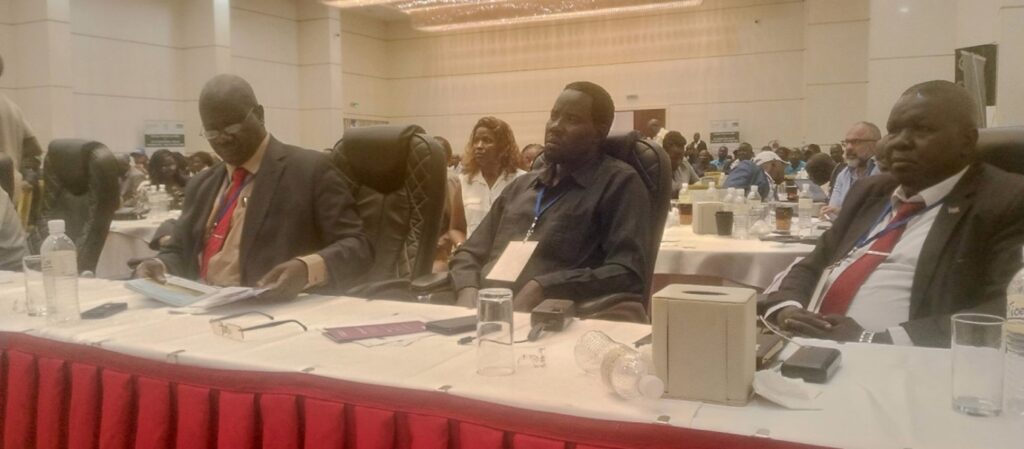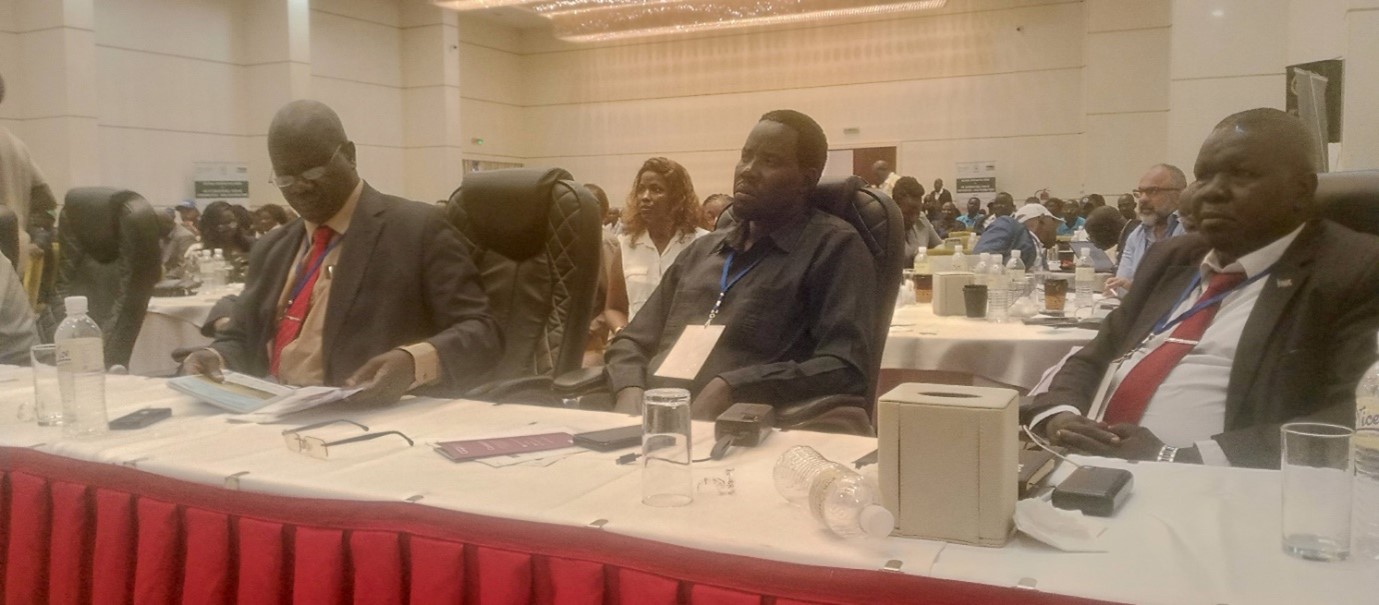South Sudan's English Daily Newspaper
"We Dare where others fear"

By Simon Deng
South Sudan’s cooperative societies, during the national cooperative forum held to mark the International Year of Cooperatives, have urged the government to create a conducive environment that will promote peace and drive development across the country.
The three-day National Forum held at the Pyramid Hotel, under the theme “Cooperatives Driving Inclusive and Sustainable Solutions for a Better World,” is organised with support from the Cooperative Bank, Alpha Bank, the United Nations Development Programme (UNDP), and the United Nations Food and Agriculture Organisation (UNFAO), among others.
Ter Gatwech Chiok Koryom, the Director of Cooperatives Field Management in the Ministry of Agriculture and Food Security, emphasised the need for the government to establish a supportive atmosphere for cooperative operations.
“The government should promptly operationalise the draft national cooperative development policy, providing a clear strategic framework and allocating the necessary resources for its implementation,” Koryom stated at the conclusion of the three-day national cooperative forum.
He also urged the government to expedite the finalisation, validation, and enactment of the revised Cooperative Society Act 2026, ensuring it is inclusive and promotes multi-stakeholder partnerships.
Koryom highlighted that cooperative societies are affected by inadequate access to finance, limited market opportunities, climate vulnerability, and insecurity. He added that there is a need to introduce low-interest loans for cooperatives.
“The cooperative societies also encourage the government to create and rejuvenate an enabling environment for cooperative development that aligns with international best practices and national aspirations,” he said.
He further noted that the government should prioritise South Sudan’s application to join the regional and international cooperative alliance to foster peer learning and access to global cooperatives.
Koryom stressed the importance of establishing proportional, fair, and suitable cooperative centres through targeted education and training, calling for the development of a standardised national curriculum for cooperative management, financial record-keeping, auditing, and training at the state level.
“The development should establish a digital e-registration and registration management information system for all cooperatives to improve data collection, monitoring, and reporting, moving away from manual records,” Koryom added.
“The programmes designed by the government and its partners should be deliberately inclusive of persons with disabilities, ensuring accessibility and creating opportunities within the cooperative framework.”




